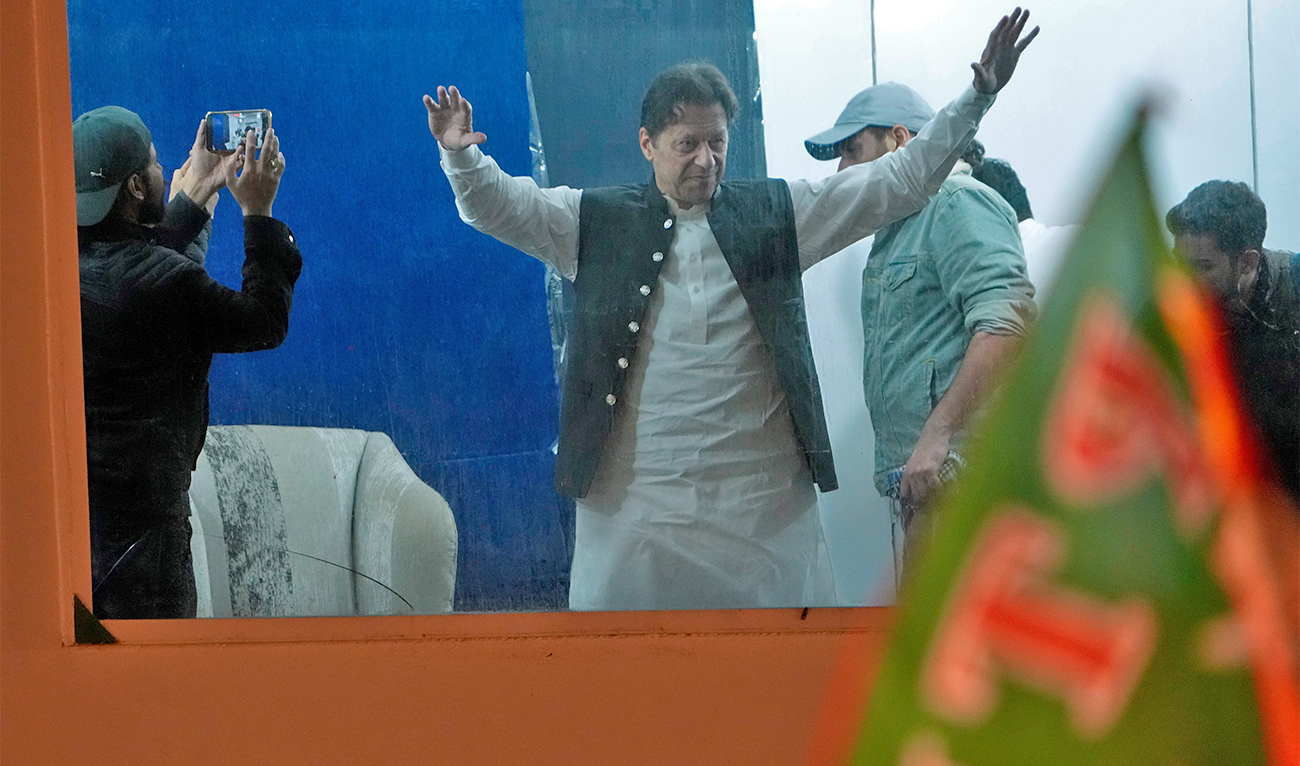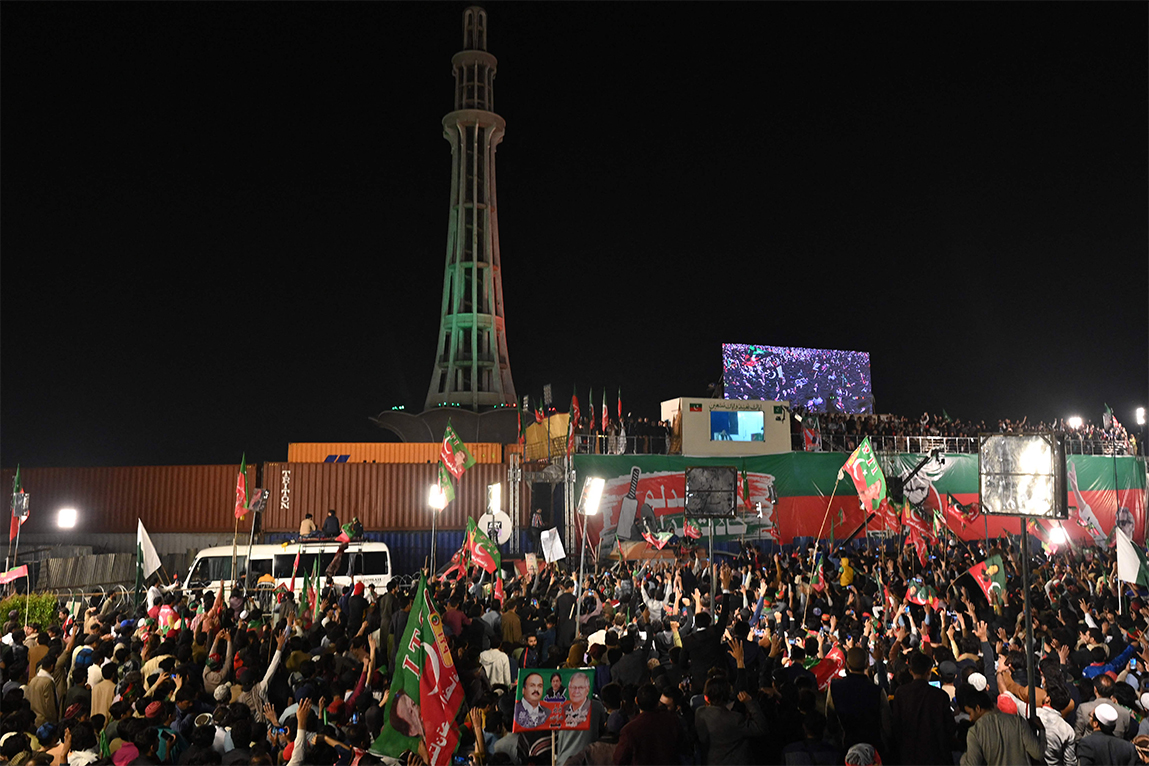ISLAMABAD: Former prime minister Imran Khan on Sunday laid out a 10-point recovery plan to steer Pakistan out of an economic crisis as he addressed a massive public gathering in the eastern city of Lahore.
The former premier said the country’s revenue collected via taxes was far lesser than its expenses and the other major problem was higher outflow of dollars than the inflows, which increased pressure on the rupee and gave rise to inflation.
He detailed a 10-point economic recovery plan to steer the country out of the crisis, stressing the need to increase exports and investment, and providing a conducive environment to businesspersons through mid- and long-term planning.
“Overseas Pakistanis are the biggest asset of the country. If we fix our governance system, rule of law... then our governance system will safeguard their capital,” Khan said.

Protected by a bulletproof barrier, former Prime Minister Imran Khan waves to supporters during a rally in Lahore, Pakistan, on March 26, 2023, to pressure the government of Shahbaz Sharif to agree to hold snap elections. (AP)
But to bring those reforms, the ex-premier said, the country’s governance system needed to be fixed and rule of law was supposed to be established.
As long as the country won’t have an enabling environment for investment, no government could bring that money to Pakistan, he said.
“Dollars flow in with increasing exports, but we never tried it,” he said. “We will divert the whole country toward exports. Whoever would bring dollars to the country by selling goods, they will be provided facilities.”
Other points of Khan’s recovery plan included the promotion of information technology (IT), tourism, mineral exploration and agriculture in the South Asian country of 220 million.
While laying out his plan, Khan also taunted the country’s all-powerful military about whether they had a plan to ‘save’ Pakistan.
“I ask Pakistan’s establishment that this is clear you have decided... we won’t let Imran Khan win. All this drama, election delay, the attack on my house, there is only one aim that we won’t let Imran Khan come to power,” he said.
“Fine, do not let [me] come to power, but tell [me] do you have any program to steer the country out of this destruction? Is there a roadmap? I challenge that the people sitting at the helm neither have the capability nor the will.”

Supporters of Pakistan's former prime minister Imran Khan gather at a rally in Lahore early on March 26, 2023. (AFP)
The former premier said there was no “easy way” to take the country out of this difficult situation.
“Only someone with public mandate can make difficult decisions, someone who came through the vote of people, whom the people trust in,” he said.
“A party that would form government through public mandate, through the vote of public, that would be the first step. When a government would come for five years, then the people, business community would have the confidence that there is political stability.”
Khan, who was ousted in a parliamentary vote of no-confidence in April last year, has been at loggerheads with the coalition government of PM Shehbaz Sharif and the country’s powerful military establishment.
The former premier accuses the coalition and former army chief Gen (retired) Qamar Javed Bajwa of orchestrating his ouster as part of a United States-backed “foreign conspiracy.” All three deny the allegation.
Since his removal from office, Khan has been agitating against the government and criticizing the military through his fiery speeches at rallies and pushing for early elections in the country which are otherwise slated to take place by October.
The ex-prime minister is also facing dozens of cases, with charges against him ranging from terrorism to sedition.












